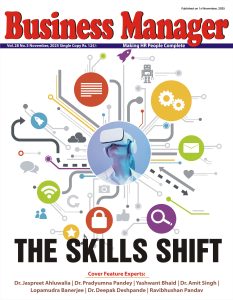(Compiled from Latest Labour Law Reporter online – October 2025)
Writ Not Maintainable Against Condonation of Delay in Gratuity Claim : Karnatak HC
In a recent ruling, the Karnataka High Court has held that an interlocutory order passed by a Controlling Authority under the Payment of Gratuity Act, 1972, condoning the delay in an employee’s application, cannot be directly challenged before the High Court.
The case — The Management of Grasim Industries Ltd. vs. The Labour Officer (Gadag) and Others — involved a writ petition challenging the Labour Officer’s decision to condone the delay in a gratuity claim filed by a workman.
Justice Suraj Govindaraj, disposing of the petition, observed that an alternative and efficacious remedy exists under Section 7(7) of the Act, which allows the aggrieved party to approach the appropriate government. The petitioner was granted liberty to file such an application within three weeks, and the government was directed to decide on it within eight weeks, taking note of the employer’s grievance regarding non-joinder of the contractor.
As no final liability was determined by the Controlling Authority, the Court clarified that there was no need to deposit any amount at this stage. (2025 LLR WEB 545, Dated 26.09.2025)
Also read – Protean eGov Technologies appoints Dr. Harpreet Singh Anand as CHRO
No Accident Compensation for Murder Unrelated to Employment: HP. HC
The Himachal Pradesh High Court has ruled that murder of an employee cannot be treated as an employment-related accident unless a clear causal connection is established between the employment and the death.
The judgment came in Kartar Singh vs. Smt. Lata Devi & Others, where the deceased, employed as a tractor driver, was attacked and killed by miscreants about seven kilometres away from his parked tractor. His dependents filed for compensation under Section 22 of the Employees’ Compensation Act, 1923, claiming the death occurred during the course of employment.
Justice Ajay Mohan Goel held that personal enmity and unrelated acts of violence do not attract employer liability under the Act. The Court emphasized that for compensation to be payable, the death must have arisen “out of and in the course of employment.” Since no such link was established, the Commissioner’s order granting compensation was set aside, and the petition was allowed. (2025 LLR WEB 546, Dated 15.09.2025)
Also read – Mahindra Holidays appoint Ghanshyam Hegdekatte as CHRO
Dispute on Production Bonus and Incentive Is an Industrial Dispute; Madras HC
In a significant decision, the Madras High Court has ruled that the denial of production bonus or incentive can be treated as an industrial dispute under the Industrial Disputes Act, 1947.
The case, Kudankulam Nuclear Power Employees’ Union vs. Government of India & Another, challenged the Central Government’s refusal to refer a dispute concerning the denial of incentives (APP reward) for 2012–2013 to employees of the Kudankulam Nuclear Power Project (KKNPP).
Justice B. Pugalendhi held that while exercising powers under Section 10, the Government cannot examine the merits of the dispute. Issues relating to incentive or production bonus fall within the “terms of employment” under Section 2(k) of the Act. The Court noted that the delay in the project, caused by external factors, cannot be a ground to deny employees’ claims.
The order declining to refer the dispute was set aside, and the matter was remanded for fresh consideration. (2025 LLR WEB 547, Dated 14.10.2025)
These three rulings reaffirm key principles in labour jurisprudence — the necessity of exhausting statutory remedies under the Gratuity Act, the importance of establishing employment nexus in compensation claims, and the recognition of incentive-related disputes as valid industrial matters. Collectively, they highlight the judiciary’s balanced approach to procedural propriety, employee rights, and employer responsibilities.










